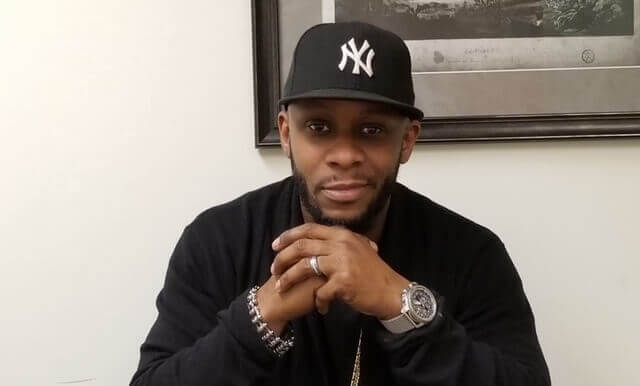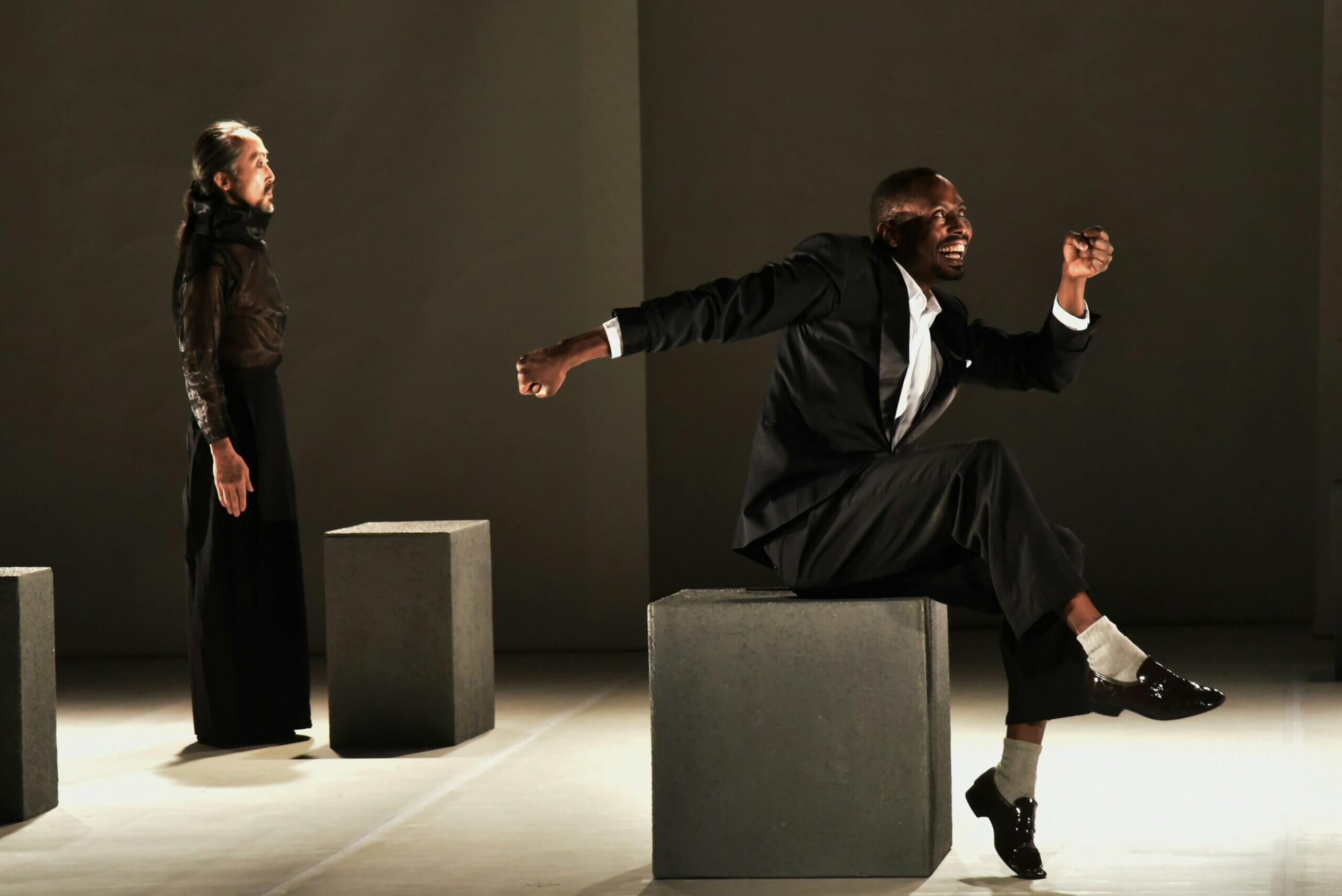Get to Know the Casting Director: George Pierre
In this installment of Get to Know the Casting Director, we got the chance to speak with George Pierre. Pierre has a number of impressive credits under his name that include titles such as Night School, Saints & Sinners, and the upcoming feature Coming 2 America. Pierre is also casting a new miniseries entitled Terror Lake Drive, which is set in a post-pandemic world and involves themes of social distancing. The Atlanta-based casting director shared what it was like to cast a project that’s so relatable at the moment, as well as his take on Atlanta being one of the first U.S. cities to begin the process of restarting productions. Pierre also spoke to both the need for accurate on-screen representation and to recent events that have shed light on injustice. Keep reading to learn more about a casting director with a lot of important things to say.
I always like to start at the beginning. When was the moment you knew that casting was for you?
It was probably when I realized that I hated being a production assistant [laughs]. I knew I wanted to do something different because I like being creative. I had a conversation with a very good friend of mine, Angi Bones, and she suggested casting. We went on to do some projects together, and then I got a call from a producer over at Rainforest Films named Will Packer. He asked me to cast No Good Deed, which stars Taraji P. Henson and Idris Elba. The way it usually works is that they have an L.A. casting director and then a regional casting director. But Will took a chance on me and gave me the entire film to cast. It released theatrically and ended up being No.1 for two weeks. I think that’s when I realized that this was for me.
What a way to solidify your career choice! OK, the next question is one of my favorite ones to ask casting directors. If someone were to make a film about your life, which actor would you cast to play the role of George Pierre?
That’s an interesting question. I grew up back in the ’80s and ’90s so it would have to be a person that I’ve been watching for a while. I don’t know if he’d want to play me, but I think Michael B. Jordan would make a great George Pierre. I’ve been following that young man since he was on The Wire, and then we were fortunate enough to hire him on an indie film called Pastor Brown before he blew up. He’s a phenomenal actor with a lot of range, and you can just tell that he loves what he does.
Great choice! Now, I’m curious about your take on the following question since you’re based in an area that’s been leading the way in restarting productions. What has your experience been with that process?
It’s definitely changing things, and we’re not going to be doing any more in-person auditions for a while. They’ve turned into live Zoom sessions, which is a whole new entity that we have to master. But since Atlanta is one of the frontrunners in restarting things, we want to show the world that everything is safe and happening according to how SAG-AFTRA wants us to do it. For example, on the project I’m working on now, everybody has to get tested prior to going to set. We want to keep safety first and foremost, and I hope other markets follow suit in that area.
Speaking of your new projects, Terror Lake Drive is set after a pandemic and involves social distancing. Was it challenging to cast a project that so closely reflects our current situation?
I wouldn’t say that the material was hard on people, as far as it being too personal or hitting too close to home. But with the timing, there were definitely challenges that came with actors not being ready to go back to working on a set. And I don’t fault them for that at all. But certain actors were comfortable with doing it, and we followed all the guidelines per SAG-AFTRA, as well as implemented additional precautions for their safety per the production company. It was a difficult process overall, but I think it’s one that is going to help us be stronger casting directors moving forward because this is going to be the new norm.
That makes sense. In relation to other recent events, can you share your perspective on the importance of accurately representing the Black community on-screen, now more than ever?
I think it’s important to keep conversations going about the injustice that is happening out there, and we need to put out content that shows where the injustice is happening. The more that we do that, the more people realize what’s going on, and it sends the message that enough is enough. And it’s important to look past someone’s exterior to see them for their inner person. Take me for example. I have a lot of tattoos, and someone looking at me might just see them and think that I’m a threat. People can make snap judgments about others based on how they look, and I think that if more people sat down and really talked to one another, we might love each other a little more. And it terms of on-screen representation, I think that all races need to be represented accurately and not just in stereotyped roles. Why does every Latino character we see have to be cutting the grass? And if you see an African American male on-screen, he’s either a drug dealer or just got out of jail. You know? So let’s start representing people in a different light and not just stick to a stereotype. That goes for Caucasian people, too. I mean, if you look at cops, not every cop is bad. I have friends who are police officers, and when all of this started going on, I called to check on them to make sure they were OK. So whether it’s on- or off-screen, it’s important to look past what someone looks like and see them as a person. And I promise you that the more we start a dialogue on this and keep it going, it’s going to be a better world.
I appreciate you being willing to have a conversation with me about such an important topic. With that in mind, are there any films or series that you feel are a must-see for people at the moment?
I’ll go with Ava DuVernay’s When They See Us. I’m going to touch on that one because it tells a true story set during an era I grew up in, and I remember what things were like then so it really resonates with me. The series is about a group of five young men who were wrongfully accused of rape and sent to prison. And I can relate to being accused of something that I didn’t do. I grew up in Brooklyn, and I can remember being 15 and walking back home after going to a Wendy’s with my friends. An NYPD car pulled up behind us, and the cops hopped out and aimed their guns at us, telling us to get on the ground facedown. One of them was a rookie — his gun was shaking in his hand. He said, “You guys just robbed somebody and got away in a white Honda.” We said that we had no idea what he was talking about because we were just walking, with no white Honda in sight. The cops got on their radios and then told us, “Alright, yeah. You guys have a good night.” I was fifteen, and they had pointed their guns at us. They put us through all that, and I was just supposed to go on and have a good night? So it really resonated with me to see When They See Us depict a true story about teenagers who were wrongfully accused. The series is absolutely well-done and shows the world what those five gentlemen went through.
When thanked for being willing to share about such a personal, vital topic, Pierre reinforced the importance of keeping the conversation going. “The world needs to know that not every African American male that you see is up to no good,” Pierre stated. “I’m trying to raise my son to be a respectful young man who doesn’t have to fear growing up in a society where they’re going to try and hurt him. You know? I don’t want him to become another statistic or name that we come to know because it’s related to another tragedy. And the same goes for my daughters. I want all of my children to become positive influences so that the reason people talk about them is because of what they’re doing for this world.” Thanks to Pierre, this installment of Get to Know the Casting Director comes not only with a window into the casting person behind the credits, but also an important truth. As Pierre tells us, accurate representation of people on-screen starts off of it. We have the opportunity every day to talk with one another and see each other as the people that we are, regardless of what we look like.
—
This interview has been edited and condensed.
Related: How to Become an Actor in Atlanta




